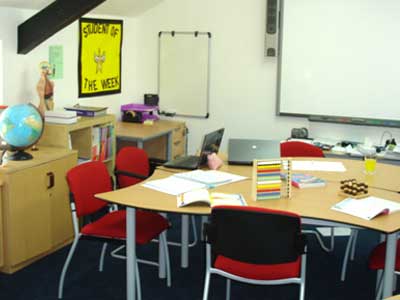
How can children and young people with an acquired brain injury achieve their potential?
At a conservative estimate, one in 30 school age children within the UK is living with the effects of an acquired brain injury (ABI) .
The effects of an ABI can range from the relatively mild to the catastrophic, but all will affect the child’s ability to function within an educational setting to some degree.
Because a child’s brain is a ‘work in progress’, problems caused by an injury sustained at one age might not become apparent until much later in their development. This is referred to as the ‘sleeper effect’ and can lead to a failure to achieve academically and socially. Children can find themselves described as ‘lazy’, having ‘teenage tantrums’ and ‘going off the rails’.
It is often the case that the child retains the fundamental ability to retrieve process and manipulate information and any prior learning but still struggles to develop academically and socially because of other, more functional problems caused by the brain injury.
It is these functional problems which can cause children with an ABI to have difficulties in mainstream or other non ABI-specialist education settings. Difficulties can include the inability to plan and forward think; sensory overstimulation; poor working memory; visual perception issues and an inability to organise themselves and their work.
However, one of the most frequent functional problems experienced by brain injured children is what is known as an ‘impaired executive function’. This is due to damage to the vulnerable frontal lobes and means they are less inhibited and more impulsive. During adolescence children usually develop increased self-awareness, self-management and the ability to pause and to consider consequences: where there is damage to the frontal lobes there is a lack of capacity to do this.
Children experiencing executive dysfunction are typically unable to check their impulsiveness, to monitor and regulate their responses to external stimuli – both physical and emotional – and to calculate the ‘cost/benefit’ of any given reaction effectively enough for them to evaluate the likely outcomes and consequently to self-regulate their behaviour/response accordingly.
This is one of the most frequently misinterpreted presentations of a child with an ABI and leads to ‘traditional’ approaches and the implementation of strategies which are damaging and counterproductive in the context of the brain injury.
In light of this evidence the SENAD Group, working in partnership with Trust-Ed, a charitable organisation which facilitates educational provision for young people with acquired brain injury, developed the UK’s first specialist school for children with an acquired brain injury, The Trust Centre.
The Centre provides a holistic and interdisciplinary approach to the education and rehabilitation of the children, using bespoke and individualised programmes, integrating teaching, therapeutic and behaviour management strategies based on the identified neurological need of the child.
A recent case study illustrates how this approach can have a quantifiably more beneficial impact on both behaviour and educational attainment of the child than programmes addressing less specifically the ABI foundations of a child’s presentation.
More information
View more examples of the types of young people we are able to help
To make a referral please email us or call us on: 01629 821480


 Bournemouth, Christchurch and Poole
Bournemouth, Christchurch and Poole  Hampshire County Council
Hampshire County Council  Lincolnshire County Council
Lincolnshire County Council  Norfolk County Council
Norfolk County Council  Northamptonshire Children’s Trust
Northamptonshire Children’s Trust  South Gloucestershire Council
South Gloucestershire Council  Wiltshire Council
Wiltshire Council  Wokingham Borough Council
Wokingham Borough Council  Children and young people with SEND are ‘valued and prioritised’ in Wiltshire, find inspectors
Children and young people with SEND are ‘valued and prioritised’ in Wiltshire, find inspectors  How specialist refugee teams benefit young people and social workers
How specialist refugee teams benefit young people and social workers  Podcast: returning to social work after becoming a first-time parent
Podcast: returning to social work after becoming a first-time parent  Podcast: would you work for an inadequate-rated service?
Podcast: would you work for an inadequate-rated service?  Family help: one local authority’s experience of the model
Family help: one local authority’s experience of the model  Workforce Insights – showcasing a selection of the sector’s top recruiters
Workforce Insights – showcasing a selection of the sector’s top recruiters 

 Facebook
Facebook X
X LinkedIn
LinkedIn Instagram
Instagram
Comments are closed.